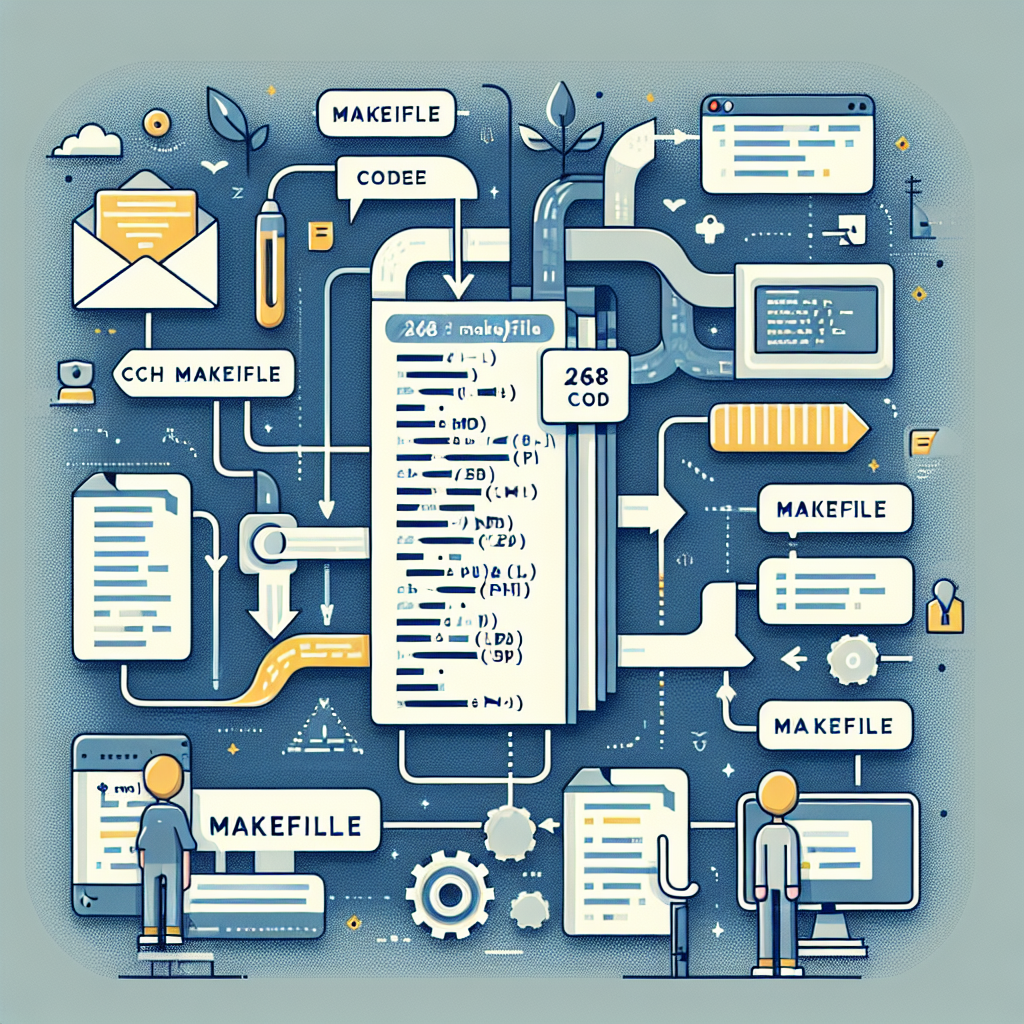katzlabbrandeis
Streamlining Environment Setup with a Makefile: Enhancements to Blech_clust

Date: February 28, 2025
Contributors: Raymond, abuzarmahmood, Abuzar Mahmood (aider), GitHub, Abuzar Mahmood
PR: https://github.com/katzlabbrandeis/blech_clust/pull/365
Introduction
In the fast-paced world of software development, setting up your environment and managing dependencies efficiently can make or break your workflow. The latest pull request to the Blech_clust project, aptly titled “268 makefile for setup,” tackles this head-on by rolling out a Makefile to automate the whole shebang. This update is a game-changer, not just because it brings back automatic GitHub action checks, but also because it streamlines installation and maintenance like never before.
Key Changes and Technical Highlights
This pull request isn’t just about adding a Makefile—it’s about transforming how we approach project setup. Here’s a snapshot of the key technical highlights:
-
Introduction of a Makefile:
We’ve added a Makefile that takes the hassle out of setting up the project environment and managing dependencies. This nifty addition makes the installation process a breeze, reducing errors and making it much more user-friendly..PHONY: all base emg neurec blechrnn clean params patch all: base emg neurec blechrnn prefect patch -
Automated Dependency Management:
The Makefile includes specific targets for installing various project components—think EMG analysis, neuRecommend classifier, and BlechRNN. It’s like having a personal assistant ensuring a consistent setup across all systems.base: params conda deactivate || true conda update -n base -c conda-forge conda -y conda create --name blech_clust python=3.8 -y conda run -n blech_clust pip install -r requirements/pip_requirements_base.txt -
Enhanced Documentation:
We’ve spruced up the README to include straightforward instructions on using the Makefile. New developers will appreciate the reduced learning curve.### Setup The installation process is managed through a Makefile that handles all dependencies and environment setup. To install everything (recommended): ```bash make all```
-
Improved Dependency Handling:
Updates to scripts, likepatch_dependencies.sh, ensure new package versions play nice together, squashing conflicts and boosting stability. Noteworthy updates include a new numpy version and pillow installation for compatibility.# Updated in patch_dependencies.sh conda run -n blech_clust bash requirements/patch_dependencies.sh -
Existence Checks and Conditional Logic:
The Makefile cleverly checks to avoid overwriting existing configuration files, adding an extra layer of protection during setup.params: @if [ $$(ls params/*.json 2>/dev/null | wc -l) -gt 1 ]; then \ echo "Warning: Params files detected in params dir. Not copying templates."; \ fi
Impact and Benefits
Introducing a Makefile dramatically simplifies setting up the Blech_clust environment. By automating dependency installation and providing clear documentation, we’ve made the project way more accessible for contributors and users. This not only speeds up onboarding but also cuts down on setup errors, leading to more efficient development cycles.
Challenges and Decisions
A notable challenge we tackled was the pesky sudo password requirement during GNU Parallel installation. By nixing this hurdle, we’ve made the setup smoother and less intrusive. Plus, consolidating installation steps and pre-checking existing installations were smart moves to minimize redundancy and errors.
Context and Broader Project Integration
These updates are part of a larger mission to fortify Blech_clust’s infrastructure, keeping it robust and user-friendly. By adopting industry-standard practices like Makefiles for setup, we’re making it easier for others to collaborate and integrate with our project.
Conclusion and Future Directions
Introducing a Makefile for setup in the Blech_clust project marks a significant leap forward in usability and efficiency. Looking ahead, we’re excited about optimizing installation scripts further, exploring containerization with Docker for even smoother deployment, and ensuring compatibility with the latest and greatest software versions.
This overhaul not only benefits current contributors but also sets the stage for future growth and collaboration within our community. As the project evolves, maintaining and enhancing these foundational tools will be crucial to sustaining its success.